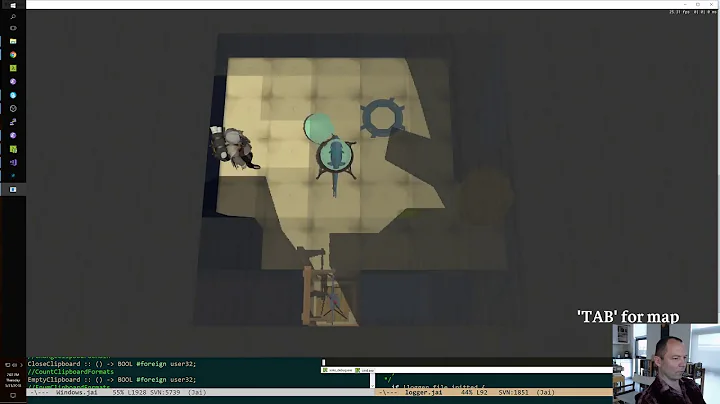Removing ANSI color codes from text stream
Solution 1
The characters ^[[37m and ^[[0m are part of the ANSI escape sequences (CSI codes).
See also these specifications.
Using GNU sed
sed -e 's/\x1b\[[0-9;]*m//g'
-
\x1b(or\x1B) is the escape special character
(GNUseddoes not support alternatives\eand\033) -
\[is the second character of the escape sequence -
[0-9;]*is the color value(s) regex -
mis the last character of the escape sequence
Using the macOS default sed
Mike suggests:
sed -e $'s/\x1b\[[0-9;]*m//g'
The macOS default sed does not support special characters like \e as pointed out by slm and steamer25 in the comments.
To install gsed.
brew install gnu-sed
Example with OP's command line
(OP means Original Poster)
perl -e 'use Term::ANSIColor; print color "white"; print "ABC\n"; print color "reset";' |
sed 's/\x1b\[[0-9;]*m//g'
Improvements
Flag -e is optional for GNU sed but required for the macOS default sed:
sed 's/\x1b\[[0-9;]*m//g' # Remove color sequences only
Tom Hale suggests to also remove all other escape sequences using [a-zA-Z] instead of just the letter m specific to the graphics mode escape sequence (color):
sed 's/\x1b\[[0-9;]*[a-zA-Z]//g' # Remove all escape sequences
But [a-zA-Z] may be too wide and could remove too much. Michał Faleński and Miguel Mota propose to remove only some escape sequences using [mGKH] and [mGKF] respectively.
sed 's/\x1b\[[0-9;]*[mGKH]//g' # Remove color and move sequences
sed 's/\x1b\[[0-9;]*[mGKF]//g' # Remove color and move sequences
sed 's/\x1b\[[0-9;]*[mGKHF]//g' # Remove all
Last escape
sequence
character Purpose
--------- -------------------------------
m Graphics Rendition Mode (including color)
G Horizontal cursor move
K Horizontal deletion
H New cursor position
F Move cursor to previous n lines
Britton Kerin indicates K (in addition to m) removes the colors from gcc error/warning. Do not forget to redirect gcc 2>&1 | sed....
Using perl
The version of sed installed on some operating systems may be limited (e.g. macOS). The command perl has the advantage of being generally easier to install/update on more operating systems. Adam Katz suggests to use \e (same as \x1b) in PCRE.
Choose your regex depending on how much commands you want to filter:
perl -pe 's/\e\[[0-9;]*m//g' # Remove colors only
perl -pe 's/\e\[[0-9;]*[mG]//g'
perl -pe 's/\e\[[0-9;]*[mGKH]//g'
perl -pe 's/\e\[[0-9;]*[a-zA-Z]//g'
perl -pe 's/\e\[[0-9;]*m(?:\e\[K)?//g' # Adam Katz's trick
Example with OP's command line:
perl -e 'use Term::ANSIColor; print color "white"; print "ABC\n"; print color "reset";' \
| perl -pe 's/\e\[[0-9;]*m//g'
Usage
As pointed out by Stuart Cardall's comment, this sed command line is used by the project Ultimate Nginx Bad Bot (1000 stars) to clean up the email report ;-)
Solution 2
I have found out a better escape sequence remover if you're using MacOS. Check this:
perl -pe 's/\x1b\[[0-9;]*[mG]//g'
Solution 3
ansi2txt
https://unix.stackexchange.com/a/527259/116915
cat typescript | ansi2txt | col -b
-
ansi2txt: remove ANSI color codes -
col -b: remove^Hor^M
update: about col handle tabs and space //mentioned by @DanielF
〇. about col handle spaces and tabs
col -bx replace '\t' to ' ',
col -bh replace ' ' to '\t'.
// seems col can't keep space/tabs as it is, it's a pity.
0. orig string
$ echo -e ' ff\tww' | hd
00000000 20 20 20 20 20 20 20 20 66 66 09 77 77 0a | ff.ww.|
1. -h repace spaces to tab
$ echo -e ' ff\tww' | col -b | hd
00000000 09 66 66 09 77 77 0a |.ff.ww.|
$ echo -e ' ff\tww' | col -bh | hd
00000000 09 66 66 09 77 77 0a |.ff.ww.|
$ echo -e ' ff\tww' | col -bxh | hd
00000000 09 66 66 09 77 77 0a |.ff.ww.|
2. -x repace tab to spaces
$ echo -e ' ff\tww' | col -bx | hd
00000000 20 20 20 20 20 20 20 20 66 66 20 20 20 20 20 20 | ff |
00000010 77 77 0a |ww.|
$ echo -e ' ff\tww' | col -bhx | hd
00000000 20 20 20 20 20 20 20 20 66 66 20 20 20 20 20 20 | ff |
00000010 77 77 0a |ww.|
3. seems col can't keep spaces and tabs as it is.
Solution 4
If you prefer something simple, you could use my strip-ansi-cli package (Node.js required):
$ npm install --global strip-ansi-cli
Then use it like this:
$ strip-ansi < colors.o
Or just pass in a string:
$ strip-ansi '^[[37mABC^[[0m'
Solution 5
What is displayed as ^[ is not ^ and [; it is the ASCII ESC character, produced by Esc or Ctrl[ (the ^ notation means the Ctrl key).
ESC is 0x1B hexadecimal or 033 octal, so you have to use \x1B or \033 in your regexes:
perl -pe 's/\033\[37m//g; s/\033[0m//g'
perl -pe 's/\033\[\d*(;\d*)*m//g'
Related videos on Youtube
user001
Updated on September 18, 2022Comments
-
user001 over 1 year
Examining the output from
perl -e 'use Term::ANSIColor; print color "white"; print "ABC\n"; print color "reset";'in a text editor (e.g.,
vi) shows the following:^[[37mABC ^[[0mHow would one remove the ANSI color codes from the output file? I suppose the best way would be to pipe the output through a stream editor of sorts.
The following does not work
perl -e 'use Term::ANSIColor; print color "white"; print "ABC\n"; print color "reset";' | perl -pe 's/\^\[\[37m//g' | perl -pe 's/\^\[\[0m//g'-
 terdon almost 11 yearsNot an answer to the question, but you can also pipe the output to
terdon almost 11 yearsNot an answer to the question, but you can also pipe the output tomoreorless -Rwhich can interpret the escape codes as color instead of a text editor.
-
-
Redsandro about 11 yearsThanks for the
sedcommand and the explanation. :) -
Redsandro about 10 yearsSome color codes (e.g. Linux terminal) contain a prefix, e.g.
1;31mso better add;to your regex:cat colored.log | sed -r 's/\x1b\[[0-9;]*m//g'or they won't be stripped. -
 Scott - Слава Україні about 8 years(1) What do you mean by
Scott - Слава Україні about 8 years(1) What do you mean byThe "answered" question? Do you mean the accepted answer? (2) This command does not work — it does not even execute — because it has an unmatched (unbalanced) quote. (3) This a useless use ofcat(UUOC) — it should be possible to doperl -pecommandcolors.o. (4) Who ever said anything about the codes being in a.ofile? -
 Scott - Слава Україні about 8 years
Scott - Слава Україні about 8 years -
 Scott - Слава Україні about 8 yearsThis a useless use of
Scott - Слава Україні about 8 yearsThis a useless use ofcat(UUOC) — it should be possible to dostrip-ansi colors.oor at leaststrip-ansi < colors.o. -
Sindre Sorhus about 8 years@Scott Sure, you can also do
strip-ansi < colors.o, but from experience people are more familiar with piping. I've updated the answer. -
Blaisorblade over 7 yearsWhat's the improvement from the accepted answer (superuser.com/a/380778/46794)?
-
BVengerov about 7 years@Blaisorblade It works on OS X, whereas
sed -rdoes NOT. -
Stuart Cardall almost 7 yearsthis is great used it in github.com/mitchellkrogza/nginx-ultimate-bad-bot-blocker/blob/… to clean up the email report.
-
CMCDragonkai over 5 yearsIn your perl example you have a command that filters out the colours. But what are the other commands? They additionally filter out the
mGandmGKHand thena-zA-Z, can you add a comment next to each one? -
Adam Katz over 5 yearsRelevant to when you're not just removing the codes but rather observing them:
grepappends\x1b[K(erase to end of line) to all color codes, so I prefer the perl/PCRE regex\e\[[0-9;]*m(?:\e\[K)?(in perl/PCRE but not sed,\eis the same as\x1b) -
 slm about 5 yearsKeep in mind that the OSX version of
slm about 5 yearsKeep in mind that the OSX version ofseddidn't work w/ the example shown, thegsedversion however does. -
steamer25 almost 5 yearsMore context for slm's comment about OSX sed: it doesn't support control characters like \x1b. E.g., stackoverflow.com/a/14881851/93345 . You can get the gsed command via
brew install gnu-sed. -
Penghe Geng almost 5 yearsgood simple solution
-
 TxAG98 almost 5 yearsThanks for this... this worked for me to get rid of that
TxAG98 almost 5 yearsThanks for this... this worked for me to get rid of thattput sgr0that the other solutions never seem to be able to get rid of. -
 oHo over 4 yearsThank you @AdamKatz for your comment. 👍 I have just edited the answer. Is it OK for you? Have fun
oHo over 4 yearsThank you @AdamKatz for your comment. 👍 I have just edited the answer. Is it OK for you? Have fun -
Adam Katz over 4 yearsSure. See also my answer below for more detail and instructions to remove every escape sequence (and, optionally, some other non-printing sequences) rather than just colors. Another note: I'm not sure I've seen a version of sed that accepts
\x1bbut not\033 -
 wchargin over 4 yearsYou should disclose that you are the author of this package, in accordance with Super User policy.
wchargin over 4 yearsYou should disclose that you are the author of this package, in accordance with Super User policy. -
Sindre Sorhus over 4 years@wchargin Done.
-
Mike about 4 yearsOn mac
sed -e $'s/\x1b\[[0-9;]*m//g'works without gsed @slm @steamer25 -
 Alejandro Teixeira Muñoz about 4 years(OP means Original Poster) <--- + 1 !!!! hahahah I'm a >2K and I'm still wondering wth it was. I always thougth it was "original petition" Thanks @olibre !!!
Alejandro Teixeira Muñoz about 4 years(OP means Original Poster) <--- + 1 !!!! hahahah I'm a >2K and I'm still wondering wth it was. I always thougth it was "original petition" Thanks @olibre !!! -
 André Werlang about 4 years
André Werlang about 4 yearsIf you prefer something simple ...goes on to propose installing an entire platform, a tool which brings dozens of unverified dependencies... 'simple' really mean different things these days... c'mom -
Kevin almost 3 yearsVery nice. This is actually the only one in this thread that successfully parsed a raw terminal log generated from sudossh2 without leaving any residual/partial sequences that seem to common in
PS1bash prompts, etc. -
Kevin almost 3 yearsJust to clarify, the only thing actually changed here from the referenced submission is replacing the shorthand
\ewhich python'sremodule doesn't seen to know about, with the long form\xb1. -
 Aubin almost 3 years
Aubin almost 3 yearssudo apt install colorized-logs -
 Daniel F over 2 years
Daniel F over 2 yearscol -bxif you need to prevent spaces getting replaced by tabs. -
yurenchen over 2 years@DanielF
-xreplace '\t' to ' ',-hreplace ' ' to '\t'. (seems col can't keep space/tabs as it is, it's a pity -
 Admin almost 2 years
Admin almost 2 yearsbrew install ansifilterfor the lazy on macOS




